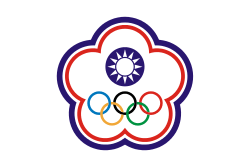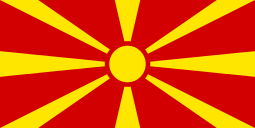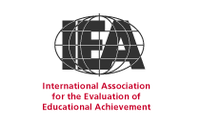International Association for the Evaluation of Educational Achievement
The International Association for the Evaluation of Educational Achievement (IEA) |
||||
|---|---|---|---|---|
|
||||
| Secretariat | ||||
| Leaders | ||||
| • | IEA Chair | Anne-Berit Kavli | ||
| • | Executive Director | Dirk Hastedt | ||
| • | Head of the DPC | Heiko Sibbens | ||
| Establishment | 1967 | |||
| Website www.iea.nl |
||||
The International Association for the Evaluation of Educational Achievement (IEA) is an independent, international cooperative of national research institutions and governmental research agencies. It conducts large-scale comparative studies of educational achievement and other aspects of education, with the aim of gaining in-depth understanding of the effects of policies and practices within and across systems of education.[1]
Since its founding in 1958, IEA has conducted more than 30 research studies of cross-national achievement. IEA studies focus on subjects relating to mathematics, science, reading, civic and citizenship education, computer and information literacy, and teacher education, among others.
The IEA
History
Even though the IEA became a legal entity in 1967, its origins date back to 1958 when a group of scholars, educational psychologists, sociologists, and psychometricians met at the UNESCO Institute for Education in Hamburg, Germany, to discuss problems of school and student evaluation. They believed that effective evaluation requires examination of both educational inputs as well as its outcomes (such as knowledge, attitudes, and participation). The founders assumed that if research could obtain evidence from across a wide range of systems, the variability would be sufficient to reveal important relationships within different school systems. They strongly rejected data-free assertions about the relative merits of various education systems, and aimed to identify factors that would have meaningful and consistent influences on educational outcomes.[2]
Mission
The IEA Secretariat and Data Processing and Research Center, together with the association's membership, carry out comparative research studies in education and aims to:
- Provide international benchmarks that may assist policy-makers in identifying the relative strengths and weaknesses of their educational systems
- Provide high-quality data that will increase policy-makers’ understanding of key school- and non-school-based factors that influence teaching and learning
- Provide high-quality data which will serve as a resource for identifying areas of concern and action, and for preparing and evaluating educational reforms
- Develop and improve educational systems’ capacity of education systems to engage in national strategies for educational monitoring and improvement
- Contribute to development of the world-wide community of researchers in educational evaluation
Location
The IEA Secretariat
The IEA secretariat is located in Amsterdam, Netherlands. It carries out a wide range of duties related to IEA memberships, studies, and finance. These responsibilities include:
- maintaining relationships with member institutions, partners, and external funding and research agencies
- overseeing IEA projects and managing translation verification of the survey instruments and quality control of data collection
- financial planning and reporting
- organizing international conferences and General Assembly meetings.
Secretariat staff also disseminate study reports and information about the work of the association to the IEA members and the public.
The IEA DPC
The IEA Data Processing and Research Center (DPC) is the data processing and research department of IEA, located in Hamburg, Germany.
The center carries out activities in several major areas including:[3]
- data management for IEA studies and for other international and national studies
- study preparation, organization, implementation, and coordination
- support services in data analysis and reporting for IEA member states
- trainings and seminars on analysis methods and use of educational research data
- additional services commissioned by both national and international scientific institution
The center also provides support services in data analysis and reporting for IEA member states, and conducts regular training activities. Another area of work is in scanner-assisted data collection, electronic scoring, and data interpretation.
Studies
Since its founding in 1958, IEA has conducted more than 30 research studies of cross-national achievement. IEA studies focus on subjects of particular interest to IEA members. These include mathematics and science studies, reading studies, civic and citizenship education, computer and information literacy, and teacher education, among others. A regular cycle of studies in basic school subjects includes:
- the Trends in International Mathematics and Science Study (TIMSS 1995, TIMSS 1999, TIMSS 2003, TIMSS 2007, TIMSS 2011, TIMSS 2015)
- the Progress in International Reading Literacy Study (PIRLS 2001, PIRLS 2006, PIRLS 2011, PIRLS 2016).
- the International Civic and Citizenship Education Study (CIVED, ICCS 2009, ICCS 2016),
- the Computer and Information Technology in Education Study (SITES-M1, SITES-M2, SITES 2006, ICILS 2013),
- the Early Childhood Education Study (PPP, ECES).
- the International Computer and Information Literacy Study (ICILS)
In 2005 IEA initiated also its first study in tertiary education:
- Teachers Education and Development Study in Mathematics (TEDS-M).
IEA repeats assessments in specific subjects on regular (e.g., PIRLS and TIMSS) and irregular (e.g., ICCS) intervals. The cycle of studies enables countries to monitor changes in education and educational achievement over time. IEA studies consider the processes and effects of education, using the notion of 'opportunity to learn' in order to understand the linkages between:
- Intended curriculum (what policy requires)
- Implemented curriculum (what is taught in schools)
- Achieved curriculum (what students learn).
To investigate these relations, IEA collects student achievement data, as well as background information from school principals, teachers, students (in some studies, also from parents), and policymakers about the contexts of teaching and learning.
Members
The IEA currently has 69 institutional members around the world, most which represent one national system of education, although a few countries have representation for more than one education system.[4]
Institutional Members include:
Africa
Asia
 Armenia
Armenia China, People's Republic of
China, People's Republic of Chinese Taipei
Chinese Taipei Georgia
Georgia Hong Kong SAR
Hong Kong SAR Indonesia
Indonesia Japan
Japan Kazakhstan
Kazakhstan.svg.png) Korea, Republic of
Korea, Republic of Malaysia
Malaysia Philippines
Philippines Singapore
Singapore Thailand
Thailand
Australasia
Europe
 Austria
Austria.svg.png) Belgium (Flemish)
Belgium (Flemish).svg.png) Belgium (French)
Belgium (French) Bosnia and Herzegovina
Bosnia and Herzegovina Bulgaria
Bulgaria Croatia
Croatia Cyprus
Cyprus Czech Republic
Czech Republic Denmark
Denmark England
England Estonia
Estonia Finland
Finland France
France Germany
Germany Greece
Greece Hungary
Hungary Iceland
Iceland Ireland
Ireland Italy
Italy Latvia
Latvia Lithuania
Lithuania Luxembourg
Luxembourg Macedonia
Macedonia Netherlands
Netherlands Norway
Norway Poland
Poland Portugal
Portugal Romania
Romania Russian Federation
Russian Federation Scotland
Scotland Slovak Republic
Slovak Republic Slovenia
Slovenia Spain
Spain Sweden
Sweden Turkey
Turkey
North Africa and Middle East
The Americas
References
- ↑ http://www.iea.nl
- ↑ http://www.iea.nl/brief_history.html
- ↑ http://www.iea-dpc.de/
- ↑ http://www.iea.nl/institutional_members.html
External links
- The International Association for the Evaluation of Educational Achievement
- The International Association for the Evaluation of Educational Achievement. ERIC Digest
- Trends in International Mathematics and Science Study
- Progress in International Reading Literacy Study
- International Civic and Citizenship Education Study
- Teacher Education and Development Study in Mathematics
- Second Information Technology in Education Study 2006
